World Day against Child Labour on 12 June came with belated actions in Turkey this year due to the parliamentary elections scheduled at the same day.
One of the outstanding organizations was a panel organized by the Çukurova University of Adana in co-operation with the Adana Governorship, the Provincial Directorate for Social Services and UNICEF. Problems related to child labour were discussed in detail.
"Turkey part of ILO program"
Assoc. Prof. Ferdi Tanır, lecturer at the Public Health Department of the Çukurova University Medicine Faculty and one of the speakers at the panel, emphasized in an interview with bianet that children who are working under unhealthy conditions today cannot develop into healthy individuals in the future.
Tanır continued, "Occupational health and security of the people is one of the main topics of the department of public health".
"In 1992, the International Labour Organization (ILO) initiated a program to stop child labour all over the world. The program was launched in six countries and Turkey was one of them".
Tanır said that in 1999, Turkey signed an emergency action plan by the ILO that aimed at abolishing the worst conditions for child labour. Within the framework of this agreement, labour of children younger than 15 years old was forbidden.
"However, according to the first article of the Convention on the Rights of the Child, every individual younger than 18 years old is considered a child and thus no person under age should be working", the academic added.
"Extended compulsory education decreased child labour"
Tanır indicated that the percentage of child labour has decreased over the past few years. Research revealed that there were 1.7 million child workers in 1992 whereas this number dropped to 960,000 in 2011. The compulsory eight-year education, raising awareness within the families and special programs helped to reduce the number of child workers almost by half.
In Turkey, the highest numbers of child workers can be found in Diyarbakır, Istanbul, Adana, Mersin and Gaziantep, Tanır explained. This ratio depends on seasonal workers and children collecting paper for recycling or selling paper tissues and water on the streets. These children move from place to place so the number of child workers in a province can change on a daily base.
"630,000 child worker in Turkey work under severe conditions"
"There are 15 fields world-wide that are considered as the worst forms of child work. In Turkey, three of these fields are assumed to be common. These are seasonal agriculture, children working in small and medium-sized industrial enterprises and children working on the street. 630,000 of the 960,000 child workers in Turkey are doing this sort of heavy work", Tanır underlined.
"12-year compulsory education a must"
Child workers are being deprived of their basic rights to education, apparel, shelter or health as defined by agreements on child rights. Hence, child labour is a problem of human rights, Tanır noted
"The first step to prevent child labour is the extension of compulsory education to twelve years. It will automatically reduce the number of child workers if children go to school until the age of 18". Children should be encouraged to attend vocational schools during this time so they can be trained in a profession that suits their talents, Tanır added.
Tanır pointed to the fact that work places and tools are designed according to the height of adults, thus the probability for injuries is higher for children.
"Almost all child workers work without insurance and are being seen as cheap work force. This also leads to the perception of children as an object of exploitation. At the same time, they work in an unhealthy environment, are deprived of education and encounter health problems".
"Putting our future on risk"
"The children suffer from physical as well as mental health problems. Children are a risk group because they fall ill much easier than adults. They are cheaper than adults and need less food".
"Taking problems experienced in socio-cultural interactions into account as well, nobody can expect them to become healthy individuals when they will be grown up", Tanır warned.
"If we put children in work places that are risky even for adults, we put our future on risk". (EKN/VK)





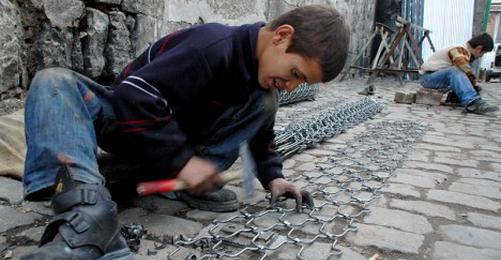
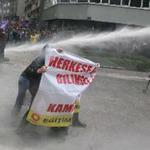

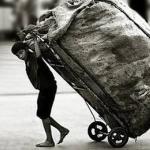
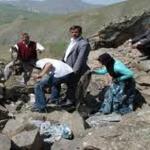
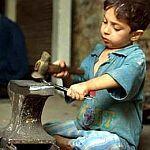

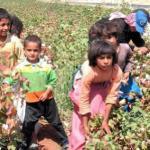

.jpg)


